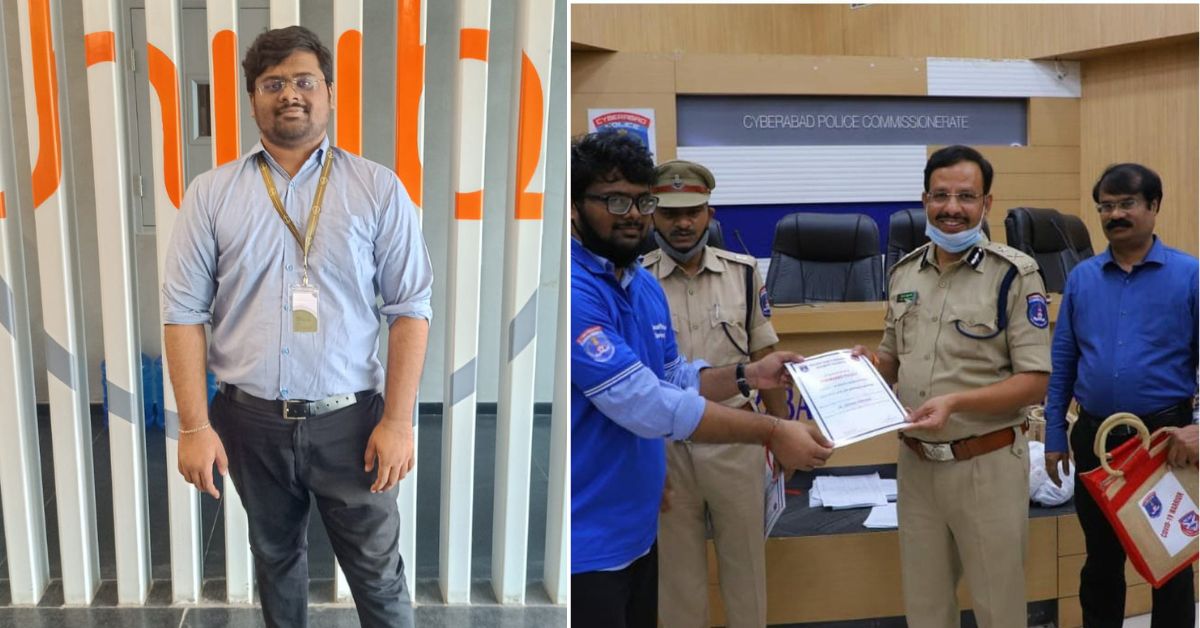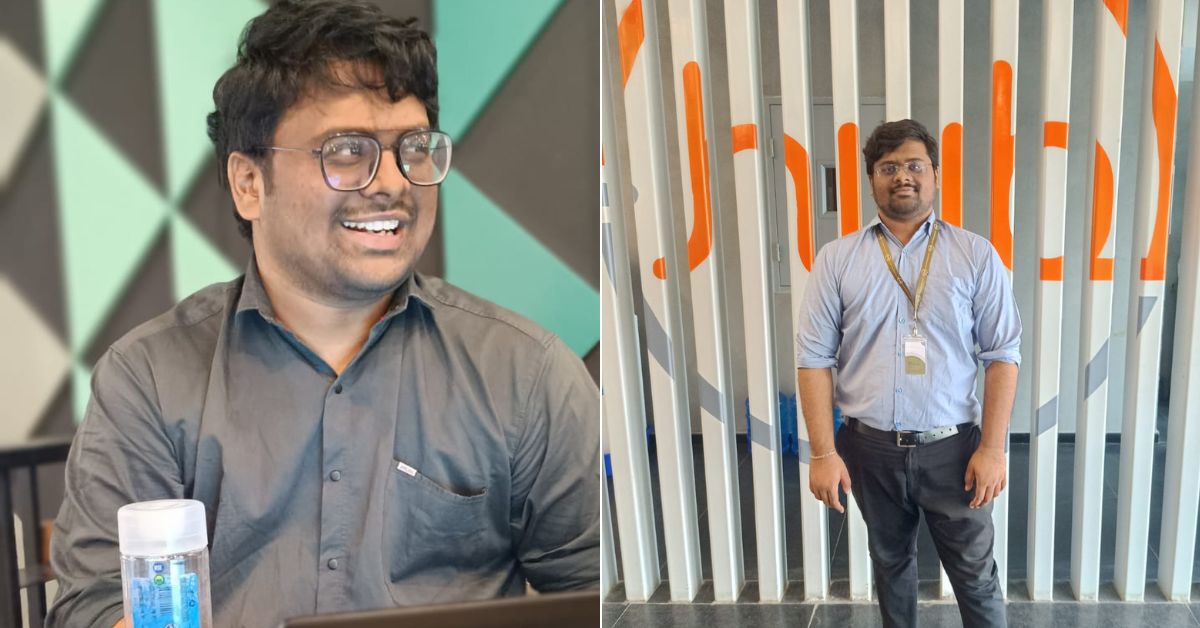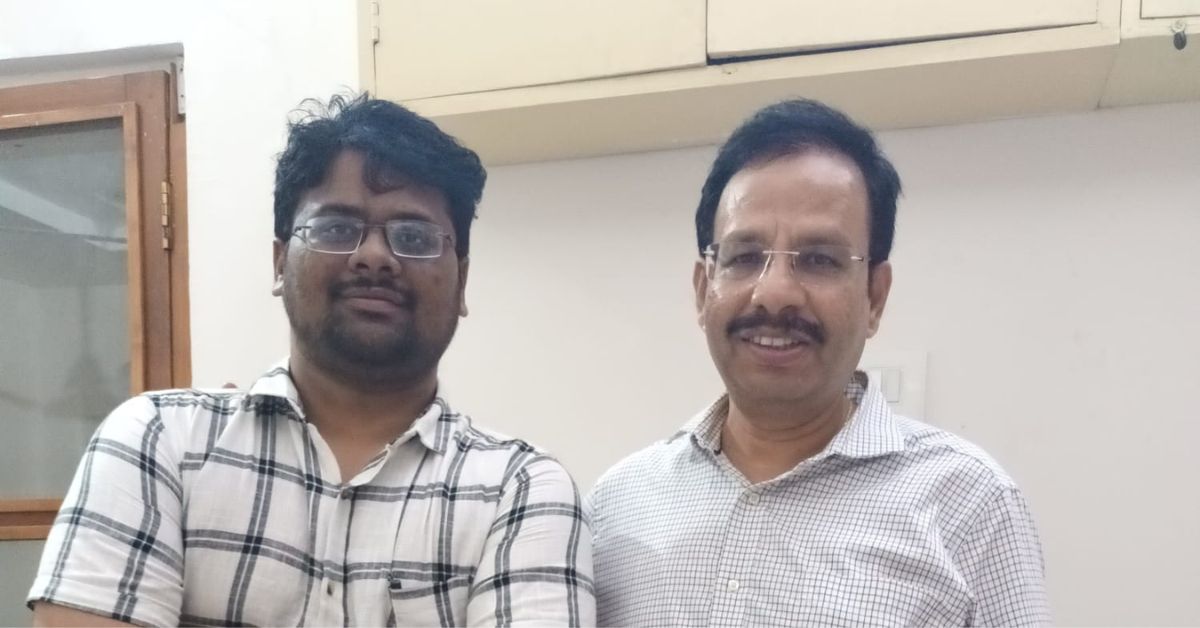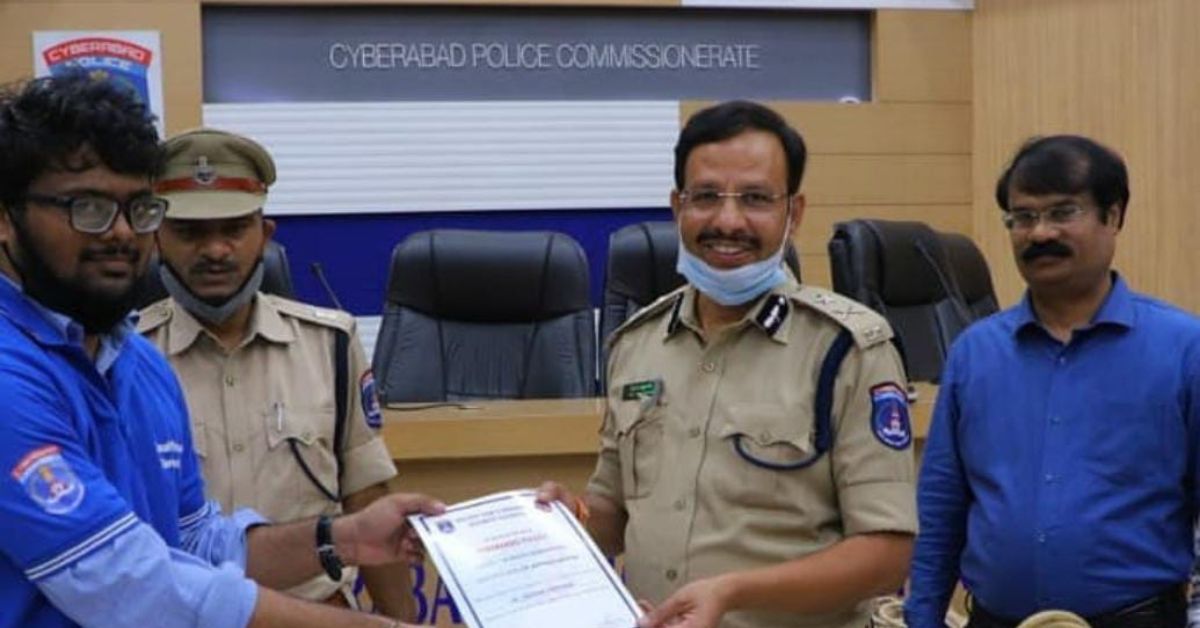‘I Fell Prey To a Loan Scam & Deep Fake Abuse’: Engineer Now Helps Victims of Cybercrime
Radha Krishna Murthy, a cybercrime survivor, founded 'Global Security Council' after facing deep fake abuse and loan scam. He shares five steps for cybercrime victims to protect themselves.

Trigger warning: Mentions of suicide, cyberbullying
Radha Krishna Murthy, living alone in Hyderabad, away from his hometown, faced a distressing incident when his father called him sounding upset. “He said ‘You killed me alive’,” Murthy recalls in a conversation with The Better India.
Upon checking his phone, Murthy discovered that his images had been morphed and shared with at least 1,500 contacts, leading to harassment and abuse. Shaken, he realised that he had fallen prey to deepfake abuse and cybercrime. For the next few days, he was harassed by strangers contacting his connections via unknown numbers and sending them his morphed images.
This cybercrime ordeal took a toll on his mental health, prompting thoughts of suicide. Nevertheless, he chose to turn his personal tragedy into an opportunity to help others facing similar situations.
So in 2022, Murthy founded the Global Security Council to protect individuals from cybercrimes. So far, he has assisted nearly 32 victims of defamation and financial fraud.

Making that one mistake
A graduate in computer science, Murthy pursued higher studies in social work at the Tata Institute of Social Sciences (TISS). Subsequently, he worked as a freelance content writer to eke out a living in Hyderabad.
Before the COVID-19 lockdown, he had lost his job. Without work and any means to return to his hometown, he volunteered to join the police force as a COVID volunteer.
“Coming from an engineering background, I was always interested in cybersecurity. I had also worked with a cybersecurity company previously, so I had little knowledge of such matters. I also worked as part of the Commissioner’s cyber security volunteering force for awareness campaigns in schools and colleges,” says the 29-year-old.
Meanwhile, without a paid job, Murthy had already started exhausting his savings. “This is when my friend informed me about an instant loan application and installed it on my phone. After he installed the app, I instantly received Rs 6,000. I didn’t even use the money as I found out that it was not affiliated with the RBI or any other banks. They were all loan sharks,” he informs.
“Anyway, they told me that I would be charged at an 18 percent rate of interest per day and I have to return the entire amount within six days. In a few days, I was called again, but this time the person started abusing me using foul language. He also warned me that if I do not return the amount, he will share my morphed images to defame me. He said he has access to all my contacts and my gallery,” he says.

But unfortunately, Murthy lost his phone while travelling to a village. “It took me two days to retrieve all my old data. I searched the same old app to pay the loan amount. But as it was an unauthorised app, it was removed from the Play Store. So, I didn’t know how to pay back,” he shares.
Eventually, Murthy found out that the criminal had circulated his naked morphed images labelling him a ‘rapist’, ‘fraudster’, and ‘kidnapper’.
“The trauma was so much that my phone would constantly ring as they continued to share my photos with all my contacts from different numbers. I was getting up to 1,300 calls and 1,500 broadcast messages in an hour. I lost my concentration on work. And I had already lost my dignity,” he shares.
“Back in my hometown, my parents were mentally tortured by relatives and society. They are teachers by profession, so they were questioned for their teachings for other kids at school when their own son was ‘unethical’. I wanted to explain to everyone I was innocent, but my own parents did not believe me. I was getting depressed, so much so that one day, I decided to take my life,” he recalls.
Surprisingly, that’s when he received a call from the then-commissioner of police V C Sajjanar. A conversation with him gave Murthy a new lease of life.
From being a victim to protecting others
As the commissioner’s contacts were among Murthy’s 1,500 contacts, he had also received similar messages from the criminal multiple times.
“As I narrated everything to him, I broke down. He mentored and motivated me to use my personal tragedy to help others. I realised if a person like me who had some knowledge of cybersecurity could become a victim, then what about young school and college-going students? I wanted to do something for society,” he says.

Then onwards, Murthy started working on expanding his cybersecurity expertise. “Firstly, I took a part-time job to manage my expenses. And then I started raising awareness on cyber security and crimes on social media,” he says.
While researching, Murthy understood that there is a large chain of criminals comprising minors who misuse the sim cards of elderly citizens to operate such applications. “They work from areas that are closer to border states. Sometimes, it becomes difficult to catch and arrest them under such circumstances,” he adds.
After he started getting help requests from victims, he launched his company ‘Global Security Council’ to assist such individuals.
Explaining how it works, Murthy says, “Firstly, I counsel the victim as most of the time they end up having suicidal thoughts. After listening to my journey, they feel motivated,” he says.
Thereafter, Murthy offers technical solutions. “I check if their phone is hacked. I remove all the permissions from the fraudulent apps and protect data breaches. I advise them to change the phone number. In cases of harassment and defamation, I also help the victims find the locations of the criminals using IP addresses,” he adds.
Murthy’s initiative has not only helped other victims but also helped him regain his identity and affection from his parents. “It was only after a year when my father finally understood me. He literally took me into his arms and broke down for having misunderstood me,” he recalls.

Five important steps for cybercrime victims
Drawing from his own experience, Murthy offers five simple ways to safeguard individuals from cybercrime and outlines essential steps that victims of cybercrime should follow.
1. Secure your data
“Firstly, it is very important to ensure that your data is secured. When you access any application, you do not just install the app, you give it access to your camera, contacts, Gmail account, and location. I suggest you install only very crucial apps and avoid giving them unnecessary access. Also, we must regularly check if our apps have any kind of access they should actually not have,” he says.
“Minimise the use of Gmail everywhere because if your phone is hacked, the hacker gets access to your phone and contacts because Gmail is linked to your contacts and gallery. Also, you must mask the camera on your laptop,” he adds.
2. Change your privacy settings
“In cases of cybercrime, firstly your WhatsApp is compromised. So, I suggest you ensure end-to-end encryption on WhatsApp. Also, many people do not know that they can choose ‘silence unknown callers’ and protect their IP addresses by changing privacy settings. You must enable it to secure yourself from cybercriminals,” he says.
3. Reboot your phone
“If you are a victim of cybercrime, then you should first deactivate your WhatsApp account immediately and remove photos from the gallery. Thereafter, you must reboot your phone. This will ensure that the hacker loses access to your data and all the apps are closed automatically,” suggests Murthy.
4. Reach out to the police
“As part of our work, we can trace the location but not the person. It is illegal. It is the police whom one should seek help,” he suggests.
“In cases of harassment or defamation on social media verticals like Instagram, WhatsApp, and Facebook, police write to their parent company Meta and report the profile. They will monitor their cookies, browsing history, and messages. So, not only will they find their location using the IP address but also identify the criminal. So, the right way is to approach the police,” he adds.
5. Register your complaint
Murthy advises victims to report cyber complaints at cybercrime.gov.in.
“The portal has a special focus on financial frauds and cybercrime related to women and children. It also allows victims to report a complaint anonymously as well. Here, you do not need to visit the police station every time,” he adds. If you found our stories insightful, informative, or even just enjoyable, we invite you to consider making a voluntary payment to support the work we do at The Better India. Your contribution helps us continue producing quality content that educates, inspires, and drives positive change. Choose one of the payment options below for your contribution- By paying for the stories you value, you directly contribute to sustaining our efforts focused on making a difference in the world. Together, let’s ensure that impactful stories continue to be told and shared, enriching lives and communities alike. Thank you for your support. Here are some frequently asked questions you might find helpful to know why you are contributing?

Edited by Pranita Bhat; All photos: Radha Krishna Murthy.
This story made me
-
97
-
121
-
89
-
167














